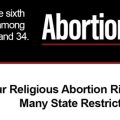
On Tuesday the Arkansas Attorney General’s office asked the Arkansas Supreme Court to dismiss a lawsuit by Responsible Growth Arkansas — a group working to legalize marijuana in Arkansas.
Responsible Growth Arkansas filed a lawsuit against state officials earlier this month after the Arkansas Board of Election Commissioners unanimously voted not to certify the group’s marijuana amendment for the November ballot.
Last week the Arkansas Supreme Court ordered the Secretary of State to place the amendment on the ballot for the time being while the lawsuit over the measure plays out in court.
On Tuesday Attorney General Leslie Rutledge’s team filed a response in state court generally denying Responsible Growth Arkansas’ allegations and asking the Arkansas Supreme Court to dismiss the lawsuit.
You can read the A.G.’s request here.
The proposed amendment makes sweeping changes to Arkansas’ laws regarding marijuana.
It repeals, replaces, and rewrites several parts of Arkansas’ medical marijuana amendment that voters passed in 2016, it adds new language to other parts of the Arkansas Constitution, and it drastically expands marijuana in every community in Arkansas.
It is unclear just how far-reaching some of these changes may be.
Below is a copy of the ballot title for the amendment that the State Board of Election Commissioners voted not to certify.
An amendment to the Arkansas Constitution authorizing possession and use of cannabis (i.e., marijuana) by adults, but acknowledging that possession and sale of cannabis remain illegal under federal law; authorizing licensed adult use dispensaries to sell adult use cannabis produced by licensed medical and adult use cultivation facilities, including cannabis produced under Amendment 98, beginning March 8, 2023 and amending Amendment 98 concerning medical marijuana in pertinent part, including: amending Amendment 98, § 3(e) to allow licensed medical or adult use dispensaries to receive, transfer, or sell marijuana to and from medical and adult use cultivation facilities, or other medical or adult use dispensaries, and to accept marijuana seeds from individuals legally authorized to possess them; repealing Amendment 98, § 8(c) regarding residency requirements; repealing and replacing Amendment 98, §§ 8(e)(5)(A)-(B) and 8(e)(8)(A)-(F) with requirements for child-proof packaging and restrictions on advertising that appeals to children; amending Amendment 98, § 8(k) to exempt individuals owning less than 5% of dispensary or cultivation licensees from criminal background checks; amending Amendment 98, § 8(m)(1)(A) to remove a prohibition on dispensaries supplying, possessing, manufacturing, delivering, transferring, or selling paraphernalia that requires the combustion of marijuana; amending Amendment 98, § 8(m)(3)(A)(i) to increase the marijuana plants that a dispensary licensed under that amendment may grow or possess at one time from 50 to 100 plus seedlings; amending Amendment 98, § 8(m)(4)(A)(ii) to allow cultivation facilities to sell marijuana to dispensaries, adult use dispensaries, processors, or other cultivation facilities; amending Amendment 98, §§ 10(b)(8)(A) and 10(b)(8)(G) to provide that limits on the amount of medical marijuana dispensed shall not include adult use cannabis purchases; amending Amendment 98, §§ 12(a)(1) and 12(b)(1) to provide that dispensaries and dispensary agents may dispense marijuana for adult use; amending Amendment 98, § 13(a) to allow medical and adult use cultivation facilities to sell marijuana to adult use dispensaries; repealing Amendment 98, § 17 and prohibiting state or local taxes on the cultivation, manufacturing, sale, use, or possession of medical marijuana; repealing Amendment 98, § 23 and prohibiting legislative amendment, alteration, or repeal of Amendment 98 without voter approval; amending Amendment 98, § 24(f)(1)(A)(i) to allow transporters or distributors licensed under Amendment 98 to deliver marijuana to adult use dispensaries and cultivation facilities licensed under this amendment; requiring the Alcoholic Beverage Control Division of the Department of Finance and Administration (“ABC”) to regulate issuance and renewal of licenses for cultivation facilities and adult use dispensaries and to regulate licensees; requiring adult use dispensaries to purchase cannabis only from licensed medical or adult use cultivation facilities and dispensaries; requiring issuance of Tier One adult use cultivation facility licenses to cultivation facility licensees under Amendment 98 as of November 8, 2022, to operate on the same premises as their existing facilities and forbidding issuance of additional Tier One adult use cultivation licenses; requiring issuance of adult use dispensary licenses to dispensary licensees under Amendment 98 as of November 8, 2022, for dispensaries on their existing premises and at another location licensed only for adult use cannabis sales; requiring issuance by lottery of 40 additional adult use dispensary licenses and 12 Tier Two adult use cultivation facility licenses; prohibiting cultivation facilities and dispensaries near schools, churches, day cares, or facilities serving the developmentally disabled that existed before the earlier of the initial license application or license issuance; requiring all adult use only dispensaries to be located at least five miles from dispensaries licensed under Amendment 98; prohibiting individuals from holding ownership interests in more than 18 adult use dispensaries; requiring ABC adoption of rules governing licensing, renewal, ownership transfers, location, and operation of cultivation facilities and adult use dispensaries licensed under this amendment, as well as other rules necessary to administer this amendment; prohibiting political subdivisions from using zoning to restrict the location of cultivation facilities and dispensaries in areas not zoned residential-use only when this amendment is adopted; allowing political subdivisions to hold local option elections to prohibit retail sales of cannabis; allowing a state supplemental sales tax of up to 10% on retail cannabis sales for adult use, directing a portion of such tax proceeds to be used for an annual stipend for certified law enforcement officers, the University of Arkansas for Medical Sciences and drug court programs authorized by the Arkansas Drug Court Act, § 16-98-301 with the remainder going into general revenues, and requiring the General Assembly to appropriate funds from licensing fees and sales taxes on cannabis to fund agencies regulating cannabis; providing that cultivation facilities and adult use dispensaries are otherwise subject to the same taxation as other for-profit businesses; prohibiting excise or privilege taxes on retail sales of cannabis for adult use; providing that this amendment does not limit employer cannabis policies, limit restrictions on cannabis combustion on private property, affect existing laws regarding driving under the influence of cannabis, permit minors to buy, possess, or consume cannabis, or permit cultivation, production, distribution, or sale of cannabis not expressly authorized by law; and prohibiting legislative amendment, alteration, or repeal of this amendment without voter approval.
Articles appearing on this website are written with the aid of Family Council’s researchers and writers.




